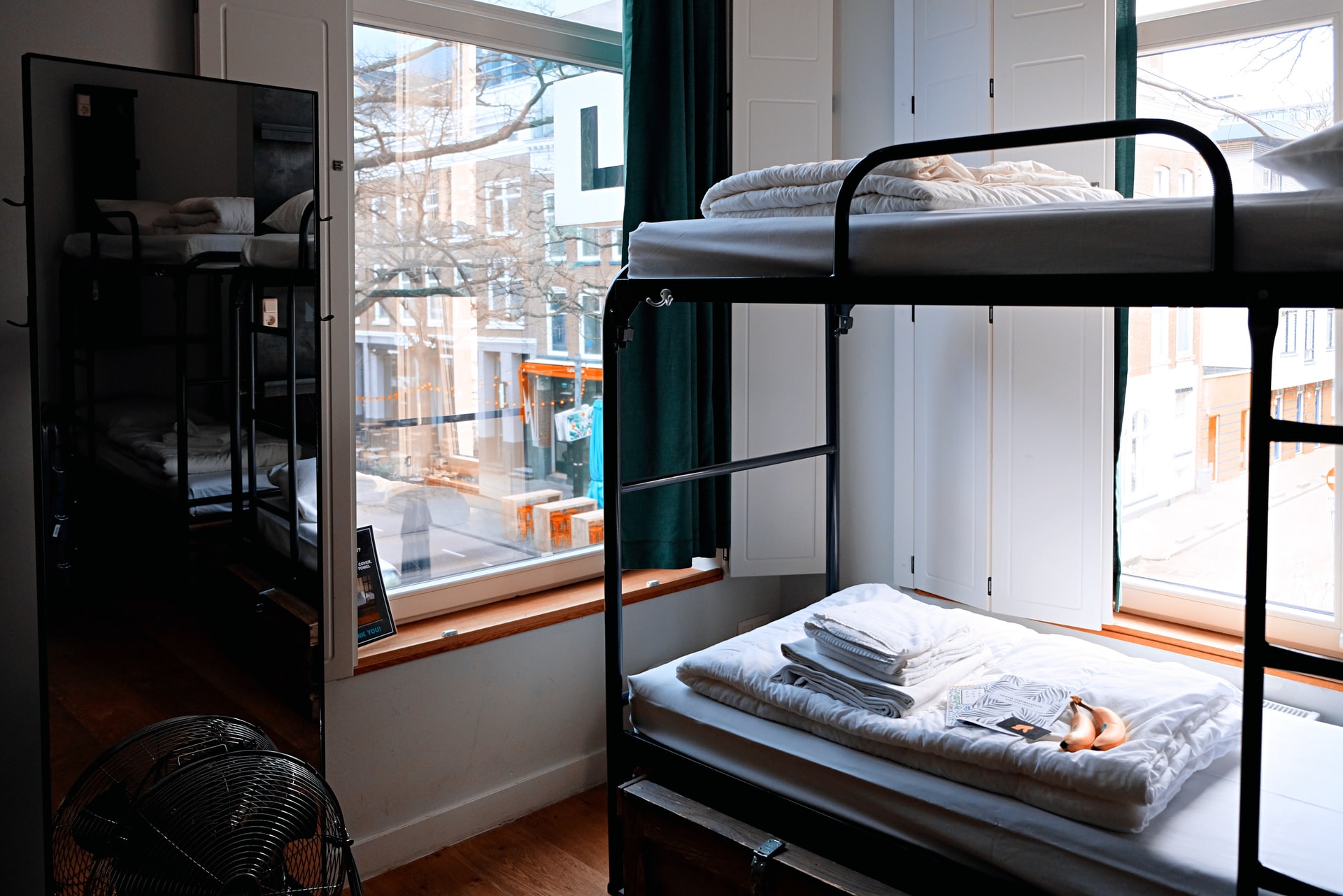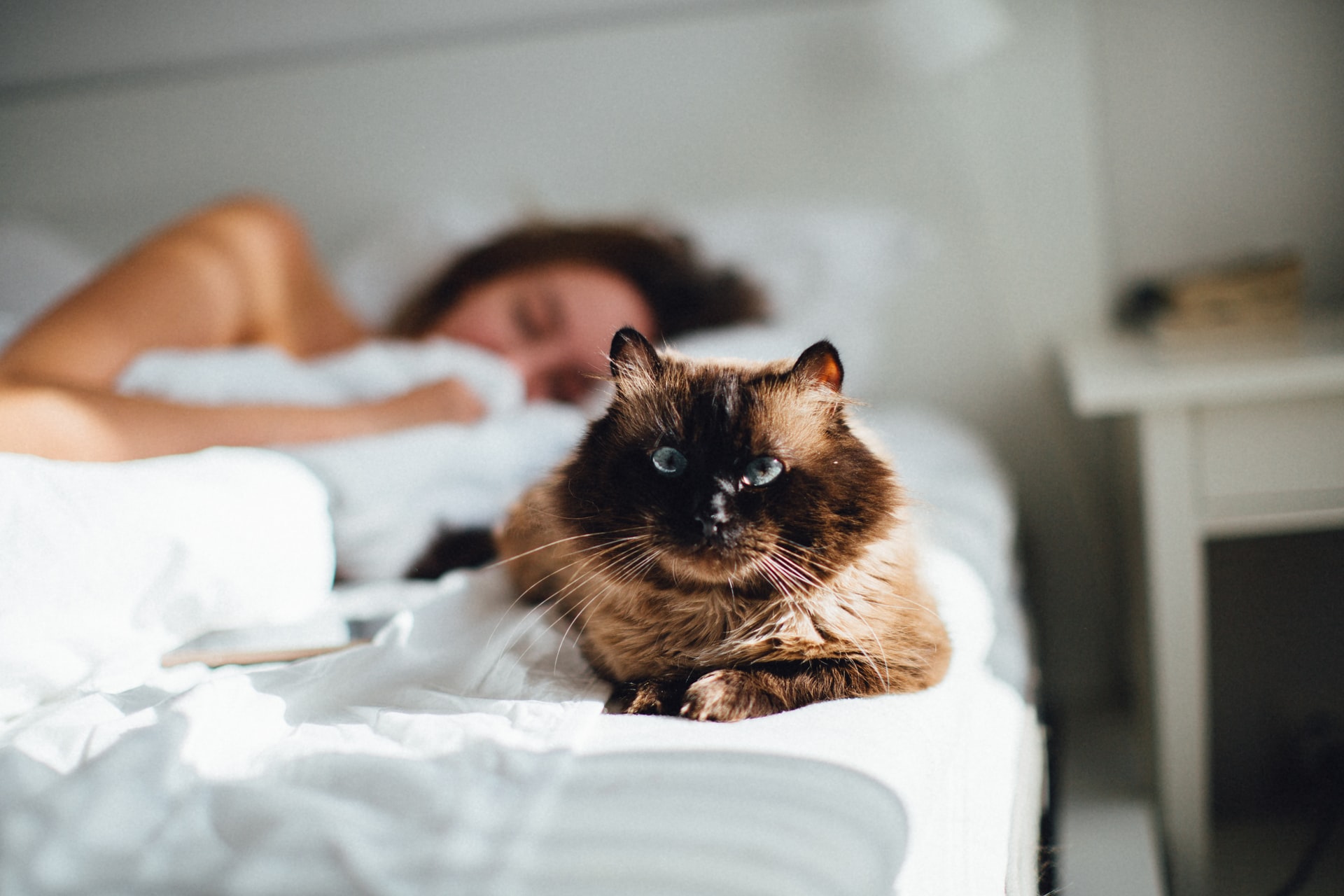How Much Sleep is Normal for Kittens? The Ultimate Guide

A newborn kitten’s daily routine is made up of sleeping 90 percent of the time — that is almost 22 hours of shuteye! The amount of sleep kittens get will decrease as they get older and move past the newborn stage, but even at six months old, they are still able to sleep for 16 to 20 hours per day.
If you have recently welcomed your home to a new kitten, a good rule of thumb to remember is the younger the kitten, the more sleep they need.
A great way to guarantee that your new addition is adjusting to their new life and their own space is to learn more about the appropriate sleeping arrangements and schedule for them.
The amount of sleep that kittens typically get is a subject of much research. Therefore, having a solid understanding of the subject will be useful as you navigate the first few weeks with your family’s new addition.
Find out when kittens begin to sleep through the night by reading on. Additionally, find out how much sleep is typical for kittens and what to do if your cat isn’t getting enough of it. Find out if kittens should be permitted to sleep in bed with their owners and other essential things you want to know.
Table of Contents
How Much Sleep is Normal for Kittens?
Kittens are known for sleeping a lot, just like newborn humans do. The amount of sleep that is “normal” for a kitten will depend on how old they are. The amount of sleep that kittens get when they are young tends to be a little bit higher than it is when they are a few months old.
A kitten typically snoozes for 16 to 20 hours per day. So, if your kitten seems to be sleeping a lot, you shouldn’t be concerned. It would be shrewd to contact your veterinarian to get confirmation that everything is fine if you feel it is abnormal or if their behavior has recently changed. You will feel more at ease as a result of this.
90% of the time, or roughly 22 hours, is spent sleeping when your kitten is a newborn through two weeks old. Your kitten’s senses and activity level will start to develop around the time it is three to two weeks old. They will therefore get less sleep as a result.
When your kitten is three months old and older, they will sleep for roughly 18 hours every day. This is comparable to how much an adult cat would weigh. Additionally, it’s crucial that you permit your kitten to sleep uninterrupted if you see them doing so.
The most important lesson to learn from this is that when your cat is a kitten, you can anticipate them to sleep a lot. Additionally, it would be wise to consult a veterinarian if you ever have any doubts about how much sleep your cat is getting—whether you worry that it is too much or not enough—or whether you think it is excessive.
Why So Much Sleep?
The body of your new kitten is actively working even though it may not seem like it because he is peacefully dozing off. These frequent catnaps are necessary for the growth of his brain and central nervous system. In young kittens, sleeping time tones and strengthens the bones and muscles that give this species its athleticism and grace. Even your kitten’s immune system remains strong thanks to sleep. Your kitten will become agitated and even more susceptible to illnesses and infections if it doesn’t get enough sleep.
Also rooted in evolution is kittens’ apparent incessant sleeping. Predators on the African plains who slept for the majority of the day and only hunted occasionally to conserve energy were the forerunners of your adorable kitten. The sleeping habits of your new kitten still demonstrate this. Young wildcats were kept safe in their nest, quiet, and unnoticed by predators by sleeping for a large portion of the day.

What Should I Do If My Kitten Isn’t Sleeping Enough?
In the case that you feel your kitten is not sleeping enough, there are several steps that you can take to help bolster their sleep routine and support a healthier one. Working with a veterinarian to make sure there are no physical health issues should be your first course of action.
Once you have successfully completed that step, you can embark on the journey of creating a sleep schedule for your new addition, providing them with a place to sleep, tiring them out during the day, feeding them a later meal, and introducing sleep objects.
Establish a Sleeping Schedule
Cats do spend a lot of time sleeping, but unfortunately, they may not always sleep when you want them to. The good news is that you can change their sleeping schedule by taking certain actions.
Making a schedule for their kitten’s sleep is the first thing kitten owners should do. Creating a sleep schedule for your cat will give it the routine that young animals need to thrive. You can accomplish this by following the steps listed below. Maintaining a routine can also be beneficial.
Give Them a Wonderful Place to Sleep
Your kitten will likely catch a nap whenever and wherever they please. Making an inviting bed for your cat to sleep in could be helpful if they are having trouble falling asleep at night.
The best option is a warm, comfortable cat bed. There is a range of different cat bed styles on the market, so it might take some experimentation to find one that your cat gravitates towards. If a cat bed helps your cat sleep through the night, it’s a purchase that will be worthwhile.
Tire Them Out During the Day
Cats that are worn out are content and sleepy. If you want your cat to sleep through the night, you can tire them out during the daytime. Your cat may wake up throughout the night for a variety of reasons, one of which is that they are eager for playtime.
Your kitten will be more inclined to fall asleep later, when the rest of your house is asleep, if you play with them and tire them out.
It’s important to be careful not to overdo it; if your young kitten ever seems exhausted while you are playing, it is a great idea to give them some time to unwind. However, moderate playtime can be an effective strategy for putting your cat on a regular sleep schedule.
Feed Them a Later Meal
Adjusting your cat’s mealtime can also help your kitty get more sleep. It’s possible that your cat’s lack of sleep during the night is related to their hunger. In addition, feeding your cat at a later time can be helpful because kittens, like a lot of animals, get sleepy after they eat a big meal.
Introduce Sleep Objects
Finally, you can introduce a memento of your cat’s previous residence. This could be a toy with the scent of their mother cat or a blanket. Given that it may take them some time to adjust to their new home, these can offer comfort if they are having trouble falling asleep.
Read about Where Do Squirrels Sleep?
Problems in Dreamland
While the length of time kittens sleep may seem excessive to new kitten owners, excessive sleeping in kittens is typically not a cause for concern. Your sleepy kitten may have an underlying medical condition, such as anemia, if you notice he lacks energy when he is awake or sleeps more than usual. Red blood cell deficiency, or anemia, can be extremely dangerous for a kitten. Particular risk applies to kittens with fleas. Check your kitten’s gums if you believe he has anemia. You should seek veterinary care right away if your pet has pale gums, which could indicate anemia.
Despite the fact that I have never heard a pet owner complain that their kitten sleeps too little, it is possible. Rare seizure and sleep disorders, among other unusual conditions, can disrupt a kitten’s sleep and prevent it from getting the rest it needs to develop and thrive. It is wise to consult your veterinarian if you are concerned that your kitten isn’t sleeping long enough or that his sleep has recently decreased. Fortunately, most of the time a kitten who doesn’t appear to be sleeping much can be explained by the fact that kittens are individual creatures, and some simply don’t require as much sleep as others.
Cats typically sleep anywhere, including in bathtubs, litter boxes, and shelves.
As a veterinarian, a common sleep concern I hear is a new kitten that chooses to not to eliminate in the litter box, but instead thinks it is the coziest of spots to sleep. Though in adult cats this can indicate a medical problem, if you find yourself in this situation with a new kitty, it is usually because of one of two reasons:
- The kitten is looking for the safety that the box provides.
- He might not enjoy the litter substrate you have selected, at least not for elimination.
With a little your assistance and perseverance, this issue will usually be resolved. Ensure that your kitten has a dedicated bed, preferably one with high sides so he has a secure place to curl up besides the litter box. Additionally, buy a few different types of litter substrates, as some cats appear to be picky from birth. When selecting a litter, try to take your kitten’s past history into account. For example, if he was born in a barn, you might want to try using pine shavings. Make sure to use a low pan instead of a regular cat litter box so it looks less like an inviting safe bed. When your kitten begins using it, which he will eventually, you can always upgrade to a regular litter box.

Do Kittens Sleep Through the Night?
It is best to be reasonable when setting expectations for your new kitten’s ability to sleep through the night. While sometimes kittens do sleep through the night, sometimes they also do not.
You shouldn’t be alarmed if your kitten appears to be waking up frequently during the night because that is also a common occurrence in young kittens.
Kittens are known for sleeping a lot because they enjoy it. Your kitten might even sleep for as much as half the day. Nevertheless, it is a fact that kittens do not always work during those hours when their human owners are sleeping as well.
In general, cats are most active at dawn and dusk. In order to adapt to their new surroundings, your new cat must also do so.
It’s therefore normal for your kitten to need a few nights to get used to their new environment. Because of this, you might spend more nights awake than usual with your new kitten.
Your kitten’s development needs rest to be successful. You must take great care to make sure your kitten is receiving the appropriate amount of food as a result. It would be wise to get in touch with a reliable veterinarian who can give you guidance on what to do if you are worried that your young cat suffers from a sleep deficit.
Does My Kitten Sleep Deeply Every Time?
Your kitten cycles through brief periods of deeper sleep and longer periods of lighter sleep as it sleeps. Only a few minutes will pass during this stage of a deeper sleep in which your kitten will be dreaming, breathing more deeply, and lying on their back or side.
When your kitten sleeps for shorter periods of time, they probably do so in a position that will allow them to pounce or jump as soon as they wake up. This is a behavior that cats naturally exhibit when they are in the wild.
Why is My Kitten So Active at Night?
Just as your household is waking up and getting busy, you might notice that your kitten curls up for a nap. Due to their tendency to be most active at dawn and dusk, cats are crepuscular mammals and as such, they exhibit this behavior. Wild cats sleep during the day and hunt at those times. The biological programming to do this is still present in your kitten. However, cats are also quite adaptable, especially if you are close to your feline companion. By giving her more to do during the day, you can teach her not to wake you up at the crack of dawn. By offering her engaging games, you can improve her daily environment. She might sleep more at night if she is more active during the day. Perhaps you could play with her right before she goes to sleep. If she wakes up early, you could always give her a puzzle feeder, a toy that contains food to keep her occupied while you make your coffee.
Should I Let My Kitten Sleep in My Bed?
Although cuddling with your kitten can be a lot of fun, letting a young kitten sleep on your bed is not a good idea. The unfortunate truth is that if you let your kitten sleep on your bed with you, you might unintentionally hurt them. In the middle of the night, you might unintentionally roll over and hurt them, or even worse.
Furthermore, once you allow them to do this once, it will be difficult to convince your cat to sleep anywhere other than in your bed. As a result, it’s not the best idea if you don’t intend to let your cat use your bed for a long time. Cats sleep where they feel safe, so if they choose your bed, it’s a compliment.
Last-minute Tips
Ever wonder what your little cat is doing while she sleeps? Your kitten may seem to be awake while experiencing paradoxical or REM sleep. She is currently in a state of alertness where she could wake up at the slightest sound and is prepared to run, pounce, or jump. These are instincts that are both protective and predatory at work.
- Make sure she has a place to sleep that is quiet so that she can enter her deep sleep phase, which is crucial for her health and wellbeing.
- Avoid waking up your kitten while she is sound asleep, despite the fact that she may make a few noises. Although we still don’t know what cats dream about, it is believed that cats dream during this time. perhaps pursuing her favorite cat toy!
Last but not least, while stimulation and exercise are beneficial for your kitten’s mental and physical health, make sure she gets enough restful sleep during the day. You’ll have fun bonding and playing together during your special moments. Try to imagine what she might be dreaming about when she is sleeping.



















![Silk & Snow Hybrid Mattress Review Should You Buy It Or Not [2022]](https://www.myspacebeds.com/wp-content/uploads/2022/11/Silk-Snow-Hybrid-Mattress-Review-Should-You-Buy-It-Or-Not-2022-520x293.jpg)

